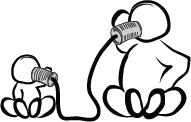
You may have heard therapists talk about play therapy as a service they provide to clients. You may even have heard a clinician refer to themselves as a play therapist because they use various play therapy interventions in their practice. However, it is not uncommon for therapists who use play in their sessions to introduce games or toys during therapy without fully understanding how to apply proper play therapy techniques. They may play games or introduce toys while also asking questions and using traditional “talk therapy” techniques to address a specific issue. Research has shown us that talking is not the most effective way to communicate with children. The human brain does not fully develop until the mid twenties and language development in children lags behind cognitive development. According to Landreth and Bratton (1999) “Efforts to communicate with children on an exclusive verbal level assume the presence of a well-developed facility for expression through speech and thus confine children to a medium that is often awkward and unnecessarily restrictive. Play is to the child what verbalization is to the adult. It is a medium for expressing feelings, exploring relationships, describing experiences, disclosing wishes, and self-fulfillment.”
The Association for Play Therapy is a national organization that sets strict standards for clinicians to earn various play therapy credentials and to call themselves “play therapists”. These standards include a specific number of hours in clinical trainings specific to play therapy, supervision by trained play therapist supervisors, and practical hands on experience applying the skills you have learned. To read more about what it takes to become a play therapist click here
Why does registration and getting the title “Registered Play Therapist” matter?
Play therapy registration matters because it proves to consumers and other professionals that you have received extensive training and that you understand the intricacies of how to apply play therapy techniques. It teaches you how to take therapy with a young child to the next level by moving beyond the toys and getting deeper into their meaning. Understanding how to communicate with children through the use of play is a complex and powerful process that will transform not only the child but also you as a clinician.
Kimberly Mossman, a Registered Play Therapist Supervisor, can help you take this next step. Starting 2020, the Association for Play Therapy will require all clinicians desiring to become registered play therapists to be supervised by a registered play therapist supervisor. Kimberly Mossman understands the process, has the necessary qualifications, and is here to guide you through meeting each of the requirements.
How does it help you as a clinician?
- Specialty– If you had a heart problem would you prefer a generalist or cardiologist? My guess is you would prefer a cardiologist because they have specialized training in a specific area of need and they are the most qualified to help you. Becoming a play therapist makes you a specialist and sets you a part from your colleagues. The title of Registered Play Therapist says that you understand play is more than passing a ball or playing checkers. It says that you understand and appreciate play as a language and that you are qualified to communicate in that language. This training and expertise allows you growth within your field and allows you to reach an underserved population.
- Growth– With different levels of credentialing there is room to grow in this field. Initially you become a Registered Play Therapist and then with advanced training you can become a Registered Play Therapist Supervisor. As a supervisor you give yourself the opportunity to guide other clinicians in their journey of working with young children in an evidence based way that best meets the needs of the child. In 2020, only Registered Play Therapist Supervisors will be able to provide this training to clinician’s seeking credentialing. There are few Registered Play Therapist Supervisors at this time on the South Shore, yet Kimberly Mossman is seeking to change that. The field of play therapy is growing leaps and bounds and Kimberly wants to make sure the South Shore keeps up with the most advanced and current treatments for children. Knowing and understanding the need for qualified and trained clinicians working with some of the most vulnerable in our community, Kimberly is dedicated to growing the number of clinician’s in the area who are trained play therapists. This is an excellent opportunity to develop your speciality and work towards registration to take advantage of the growth that is occurring.
If you have questions or would like to discuss play therapy training and supervision further please call 508-273-5008 or email kim@kmossman.com
